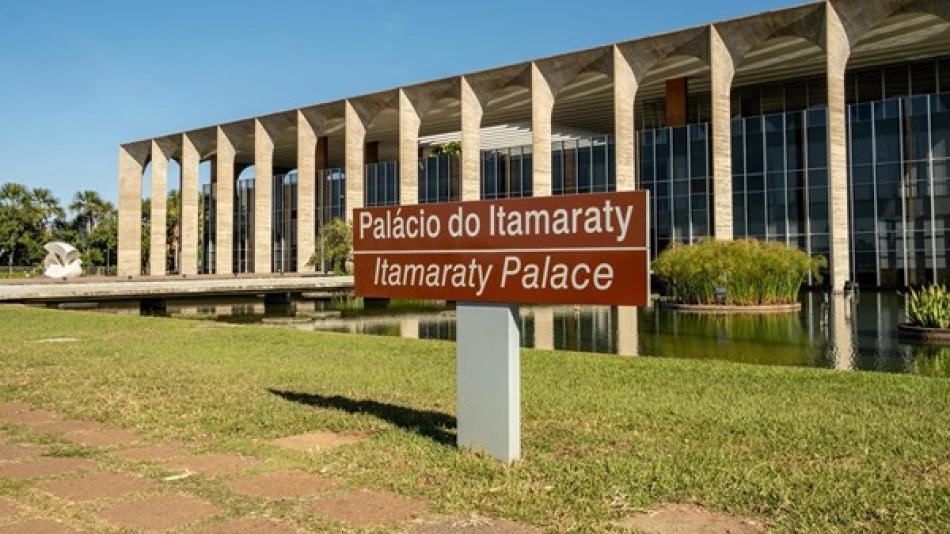
Brazil Applauds France's Decision to Recognize the State of Palestine
France's Palestine Recognition Signals Major Shift in European Diplomacy
Brazil has welcomed France's announcement to formally recognize Palestinian statehood at the UN General Assembly in September, marking a significant diplomatic breakthrough that could reshape European policy toward the Israeli-Palestinian conflict. The move represents the highest-profile Western recognition since the current Gaza war began, potentially triggering a domino effect among hesitant European nations.
Brazil Leads Call for Universal Recognition
The Brazilian Foreign Ministry issued a statement Friday urging "all other countries that have not yet done so" to follow France's lead. Brazil emphasized that growing international recognition of Palestinian statehood "contributes to meeting the aspirations for peace in the region and freedom and self-determination for the Palestinian people."
This diplomatic push comes as President Emmanuel Macron announced Thursday that France would formally recognize Palestine during September's UN General Assembly in New York, choosing the world's most prominent diplomatic stage to make the declaration.
The Numbers Behind the Movement
According to recent tallies, at least 142 countries have already recognized or plan to recognize Palestinian statehood. Brazil has been among the early supporters, extending recognition in 2010 and consistently advocating for a two-state solution to the Israeli-Palestinian conflict.
Post-Gaza War Momentum
Several nations have announced recognition decisions specifically following the outbreak of the current Gaza conflict, suggesting the war has accelerated diplomatic momentum rather than freezing it. This trend indicates that prolonged military action may be backfiring diplomatically for Israel, as international patience wears thin.
Strategic Implications for European Unity
France's decision could fracture the European Union's already fragile consensus on Middle East policy. While countries like Spain, Ireland, and Norway have moved toward recognition, Germany and other key EU members remain opposed, citing security concerns and the need for direct negotiations.
The timing is particularly significant as it comes ahead of potential changes in U.S. leadership, where Palestine recognition has historically been a red line. France's move suggests European powers may be preparing for more independent Middle East diplomacy, regardless of American preferences.
Impact on Peace Process Dynamics
This wave of recognition fundamentally alters the diplomatic landscape by treating Palestinian statehood as an established fact rather than a negotiating outcome. The strategy effectively bypasses traditional peace process frameworks, potentially forcing Israel to engage with Palestine as a recognized state entity in future negotiations.
For Palestinian leadership, this represents a major victory in their long-standing campaign for international legitimacy. However, the practical impact remains limited without recognition from major powers like the United States, Germany, and others in Israel's traditional support network.
Brazil's Regional Leadership
Brazil's vocal support reinforces its position as a leader among Global South nations increasingly willing to challenge Western foreign policy orthodoxy. As Latin America's largest economy, Brazil's diplomatic weight adds substance to the recognition movement beyond symbolic gestures.
Most Viewed News

 Layla Al Mansoori
Layla Al Mansoori






